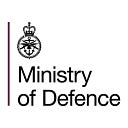Military Aid to Civil Authorities (MACA): 5 things you should know
A key element of the UK’s response to the Coronavirus outbreak has involved the military. Once again they are stepping up to support. Here are 5 things you need to know about MACA
From helping with flood relief in West Yorkshire to supporting London Olympics in 2012, the military has always played a key role in the nation’s collective response to major events at home.
The Armed Forces once again are supporting the NHS in the fight against COVID. They will be administering COVID-19 vaccines and helping with planning to maximise the effectiveness of the booster rollout in response to the new Omicron variant.
1. What is Military Aid to Civil Authorities (MACA)?
Military Aid to Civil Authorities aka MACA is the help and support provided by the Armed Forces to authorities in the UK, like the Police, NHS or local authorities. The government can call on the military to assist at times of need, to share the burden on civil organisations.
MACA may include assisting other government departments with urgent work of national importance such as responding to emergencies, maintaining supplies and essential services.
The armed forces also step in to provide assistance to communities for special projects or events of significance, or through the use of Reservists.
2. Why the armed forces?
Our servicemen and women are called upon due to the specialist skills, experience, expertise and equipment they have to offer.
Military stand ready to support civil authorities when the latter’s capacity is overwhelmed. Support and resources are offered up when they are not critical to the running of the military’s core mission.
3. When does the government call in the military?
The military only gets involved if and when:
- The civil authority has all or some capability, but it may not be available immediately
- The urgency of the task needs rapid external support
- The civil authority lacks the capability to fulfil the task and it would be unreasonable or too expensive to expect one to be developed
- There is a definite need to act and the tasks the armed forces are being asked to perform are clear
- Mutual aid and commercial alternatives have been discounted
4. What exactly would the military help with?
As highly trained members of the military, our soldiers, sailors, airmen and women can help with:
- Planning: When needed, a team of military planners can support government departments to tackle crises and act as military liaisons. Read more here.
- Natural disasters: Most memorably at times of flooding and snow, the military can help protect human life, property and reduce distress
- Animal disease outbreaks or public health epidemics: Provide medical and logistical expertise as required
- Public service related industrial disputes that affect our safety or security, or disruption to transport or communications links: The UK Armed Forces have trained logisticians who can lend expert advice at a time of need
- Criminal or terrorist activity: Providing specialist expertise, skills and experience tailored to the circumstance
- Acts of terror: The government can deploy soldiers to take the place of police officers and help protect people, landmarks and events — enabling more police to be reallocated to an ongoing crisis/emergency
- Bomb disposal: Known officially as ‘explosive ordnance disposal’, this can be related to terrorism, or involve disposing of a bomb discovered from previous conflicts
- Mountain rescue: The Royal Air Force Mountain Rescue Service is able to support civil authorities by helping people in danger in hard to reach places
- Protecting UK waters: While the Armed Forces constantly protect our waters, the government can request their support specifically for tasks relating to energy installations, ports, immigration issues and fishery protection
5. Do you have any examples of MACA?
- Flood relief during Storm Dennis — Over 140 British Army personnel were deployed in 2020 to help assist civil authorities in providing flood relief to local communities in West Yorkshire
- 2012 London Olympic and Paralympic Games — In total, up to 13,500 personnel and a number of military assets were deployed including Royal Navy warships and RAF fast jets
- Whaley Bridge — In 2019 a RAF Chinook helicopter was tasked to Whaley Bridge to assist with a collapsing dam at Toddbrook Reservoir amidst residents’ fears their Derbyshire town could be flooded
- Operation TEMPERER — UK Armed Forces personnel were deployed following the Manchester Arena Bombings and then again following the Parsons Green attack in London
- The Covid Support Force — From March 2020, The UK Armed Forces supported the national response to Coronavirus, from delivering PPE to air transport support and mobile testing units.
